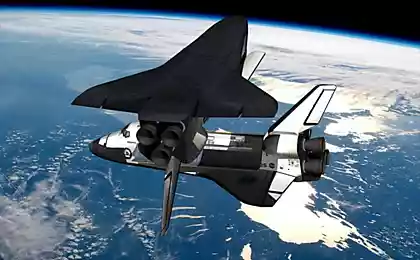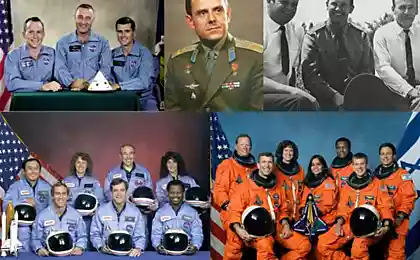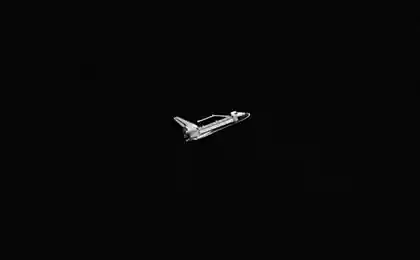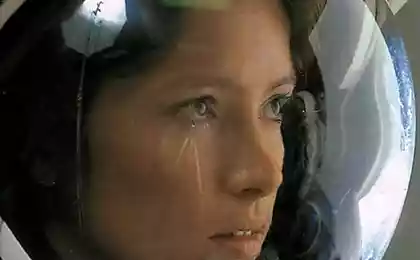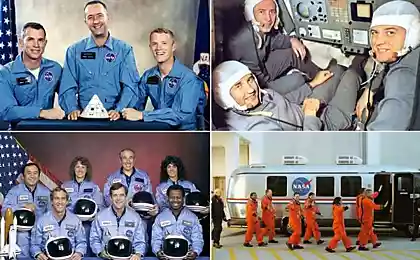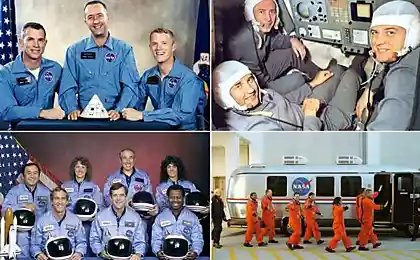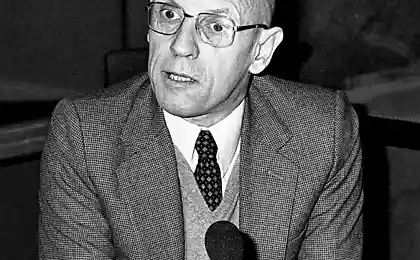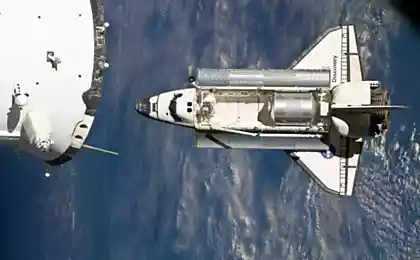1703
The truth about the cosmic madness astronauts

These early fears psychiatrists NASApriveli to increased testing of the first astronauts drawn from the American test pilots of the Air Force. Newly minted astronauts were very professional and balanced in the vast majority of life-threatening scenarios - a reality that has not prevented reporters and science fiction writers portray astronauts going crazy or becoming spiritually changed after spaceflight.
"People make a film about how astronauts suffer mental stress long before sent into space," said Matthew Hersh, a historian of science and technology at the University of Pennsylvania. "They assumed that the flight from the earth, and the journey to heaven will be so traumatic for the human psyche that people should have in some way deprived of reason».
"The meaning of psychological transformation of some forces of space flight on the human was the result of science fiction stories and strange uncertainty about what the journey aboard the powerful rocket into the unknown might affect the human soul," said Hersh. He also described how the Americans projected their own hopes and fear of the past decades, the idea of space flight in the article, which was published in the March issue of the journal Endeavour.
Metamorphosis in space
American astronauts and Russian cosmonauts colleagues mostly kept cool during the long flight aboard space stations such as Skylab, Mir and the International Space Station. This is, by and large, is different from what was written in the science fiction stories that are filled space travelers, going crazy or experiencing moments that changed their lives.
"There are no examples that we could consider as out of the ordinary event or psychological disease in all missions related to space flight," said Hersh news agency InnovationNewsDaily. "But there were always arguments, disagreements and the occasional cry of who undertake the ceiling».
Despite the fact that the authors like to imagine, they also showed excellent business acumen astronauts and their stoicism in the face of danger, which was to the liking of the world community. Neil Armstrong, the first man who walked on the moon, showed stone calm when he was thrown from the jet simulator lunar landing less than a second before the simulator crashed on the ground - he surprised even his colleagues when he returned to safely modify in its test capsule after only an hour after the incident.
Pop culture and media reports of the 1960s, also made their contributions in support of the stoic image of astronauts. But the authors and reporters of the 1970s wanted to show a more human side of astronauts - they represented them crack under psychological pressure or experiencing spiritual transformation after spaceflight. But in both cases the astronauts finished mostly disappointing.
There spacesuit fly
Opening Space Flight individuals who fly as a "space tourists" in the 21st century, can again restore the hushed buzz today about the "Space Madness". "Because we see that the space becomes more open to people who sit in spaceships, without being a former test pilots, that is some concern about such tourists without actually having behind a lifetime of learning a variety of stressful situations," said Hersh .
These problems arose in the past, when NASA launched its space shuttle program a large number of civilian scientists, engineers and teachers. But, in the end, civilian astronauts soon proved that they may well be suitable for space travel. The first few space tourists mainly found themselves motivated and eager to pass an intensive training course.
However, the space-faring nations are no longer experiencing the alleged fear of "space madness" when planning a real human problems in new projects spaceflight. China carefully examine their potential astronauts (called taikonauts) to accurately identify the compatibility among the possible space crews - a problem that is rarely considered during the early years of space flight. NASA, in recent decades, and paid more attention to the psychological health of its astronauts to Earth.
The surprise of it all
Space Madness can only exist in science fiction stories, but not in reality. Yet, the idea of space flight, as life-changing experience - something like a spiritual flight - is still strong in the minds of people forming the next generation of space explorers. These people are from the earliest rocket pioneers to private entrepreneurs today.
"This idea is often motivates people that are business related to space flight," Hersh explained. "Almost every pioneer of space flight, including Wernher von Braun, was captured by the idea that the experience of space flight can be good not only for their own benefit, but also for reasons of military, business and technical capabilities».
But will there ever be a time when space travel will no longer be viewed as something changing all my life and will be for a person commonplace? Hersh says that, yes!
"It may take a few hundred years, but we will eventually be there," says Hersh.

